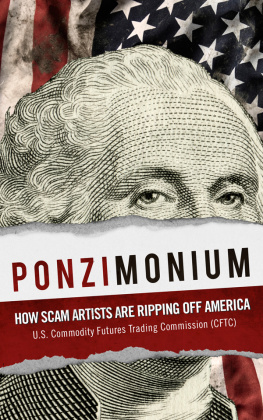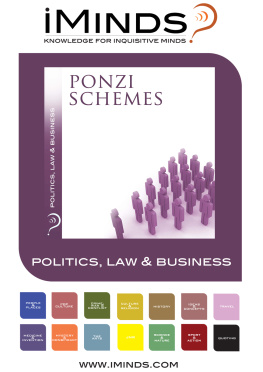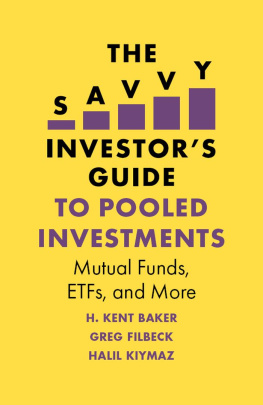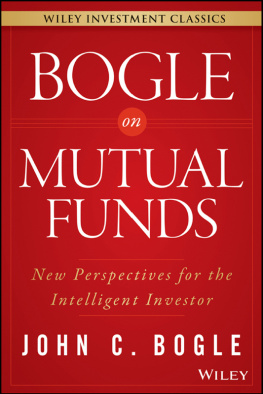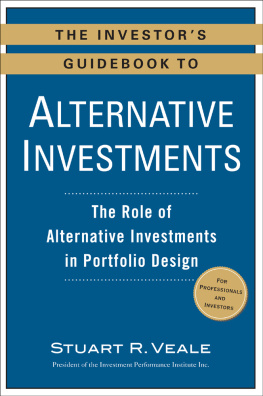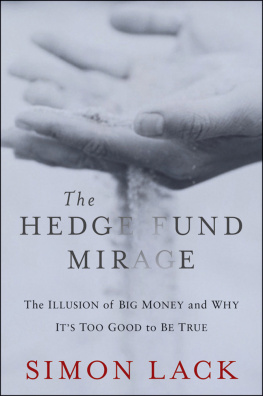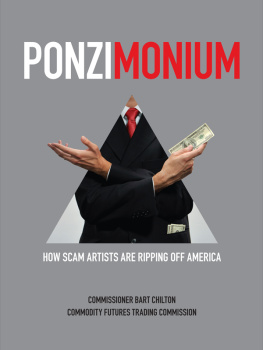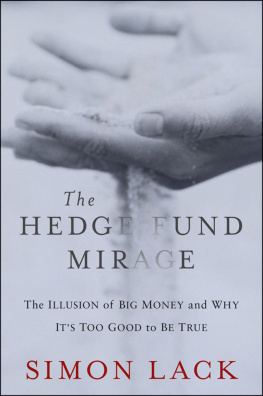Copyright 2016 by U.S. Commodity Futures Trading Commission (CFTC)
All rights reserved. No part of this book may be reproduced in any manner without the express written consent of the publisher, except in the case of brief excerpts in critical reviews or articles. All inquiries should be addressed to Skyhorse Publishing, 307 West 36th Street, 11th Floor, New York, NY 10018.
Skyhorse Publishing books may be purchased in bulk at special discounts for sales promotion, corporate gifts, fund-raising, or educational purposes. Special editions can also be created to specifications. For details, contact the Special Sales Department, Skyhorse Publishing, 307 West 36th Street, 11th Floor, New York, NY 10018 or .
Skyhorse and Skyhorse Publishing are registered trademarks of Skyhorse Publishing, Inc., a Delaware corporation.
Visit our website at www.skyhorsepublishing.com.
10 9 8 7 6 5 4 3 2 1
Library of Congress Cataloging-in-Publication Data is available on file.
Cover design by Rain Saukas
ISBN: 978-1-5107-0788-7
Ebook ISBN: 978-1-5107-0792-4
Printed in the United States of America

Contents

About the US Commodity Futures Trading Commission (CFTC)
C ongress created the US Commodity Futures Trading Commission in 1974 as an independent agency with the mandate to regulate commodity futures and option markets in the United States. The CFTCs fellow federal financial regulatory agencies include the Securities and Exchange Commission (SEC), the Federal Deposit Insurance Corporation (FDIC) , the Federal Reserve Board , and the Office of the Comptroller of the Currency (OCC). The CFTCs mandate has been renewed and expanded several times since 1974, most recently with the Dodd-Frank Wall Street Reform and Consumer Protection Act, signed into law by President Barack Obama on July 21, 2010. Dodd-Frank ushers in a new era for the CFTC by expanding its regulatory authority to the over-the-counter derivatives markets. Over-the-counter derivatives previously have not been regulated in the United States and were at the center of the 2008 financial crisis.
FDIC Federal agency that regulates national banks
FEDERAL RESERVE BOARD Federal agency that regulates certain state banks, bank holding companies, and foreign bank activity in the United States
In 1974, the majority of futures trading took place in the agricultural sector. The CFTCs history demonstrates, among other things, how the futures industry has become increasingly varied over time and encompasses a vast array of complex financial futures contracts.
Today, the CFTC assures the economic utility of the futures markets by encouraging their competitiveness and efficiency, protecting market participants against fraud, manipulation, and abusive trading practices, and by ensuring the financial integrity of the clearing process. Through effective oversight, the CFTC enables the futures markets to serve the important function of providing a means for price discovery and offsetting price risk.
The CFTCs mission is to protect market users and the public from fraud, manipulation, and abusive practices related to the sale of commodity and financial futures and optionsand now, over-the-counter derivativesand to foster open, competitive, and financially sound futures and option markets.
The CFTC relies on the public as an important source of information in carrying out its regulatory and enforcement responsibilities. Under a new provision in the Dodd-Frank Act, whistleblowers may be awarded monetarily by the CFTC for original information that leads to the successful enforcement of a CFTC action. This provision will make it easier for whistle-blowers to come forward with relevant information, helping to prosecute more scam artists and thus saving American taxpayers and consumers money in the long run. You may contact the CFTC to report suspicious activities or transactions that may involve the trading of commodity futures contracts or commodity options, including those that involve foreign currency. The CFTC may be contacted through its toll-free telephone number, 1-866-FON-CFTC (1-866-366-2382), via email at / ConsumerProtection. The Commission may use this information in its investigations or enforcement actions, but it does not act on your behalf or represent you in any way.
The CFTC also offers a reparations program that provides an inexpensive, impartial, and efficient forum for customer complaints against futures industry professionals. Customers may bring complaints against futures industry professionals currently or formerly registered with the CFTC if such individuals or firms allegedly violated the antifraud or other provisions of the Commodity Exchange Act. Reparations cases are decided by Judgment Officers or Administrative Law Judges, depending on the size of the claim. For more information, please contact the Office of Proceedings at 202-418-5350 or via email at .

Foreword
E very single day, someone somewhere makes a gigantic mistake by giving his or her money to a fraudster. Im not referring to those suckers born every minute types. Im talking about regular, hardworking folks who play by the rules and think they are making sound investment decisions, often with significant sums of their non-disposable cash. Smooth talking masters of illusion are out there, twisting and turning their stories to convince would-be investors to hand over their funds. The consequences for these investors turned victims can be horrific: people losing money for their kids college funds; for detrimental health care expenses; or for their own retirement. Some lose their entire life savings. Others unknowingly bring friends and family into the scam thinking they are doing them a favor.
A lot of times, fraudsters remain off the radar and get away with their swindles for years and even decades. Many individual investors dont discover the fraud until they are faced with an economic downturn or some time-sensitive need. Then, when they try to retrieve their investments, they are told, Nope, you cant have your money back right now. Thats when they discover that they have given their money to a fraudster. The funds were all part of a scam and the money is simply gonekaput.
What the fraudsters do in that time is even more amazing. You should see the stuff crooks do with other peoples money.
Fortunately, these con artists are being apprehended and prosecuted. Federal, state, and local law enforcement officials have reported enormous increases in tips and criminal activity since the economic downturn began in 2008. As the markets began to flounder, people wanted out of their investments. However, cash redemptions are dangerous for Ponzi schemes, because when the money runs out, folks start talking. At any one time, enforcement staff at the US Commodity Futures Trading Commission (CFTC) are investigating anywhere between 750 and 1,000 individuals and entities for various violations of the law. Increases in tips and fraud cases also have occurred at the US Securities and Exchange Commission (SEC) , at the Federal Bureau of Investigation (FBI) , in the states, and in various localities around the world.
The stories you are about to read are actual CFTC cases stemming from investigations that began with the economic downturn. These are real cases with, unfortunately, very real victims. The information is pulled directly from the public case files and the media; the only added color is in the presentation and the benefit of hindsight. Ive changed some names in order to ensure that no one is revictimized by their willingness to come forward and be a part of these cases. There is no shame in being a victimit could have been, and might well be, any one of us. Youll see that a majority of the defendants in these cases are now in prison or awaiting sentencing.

